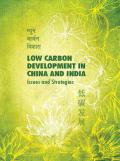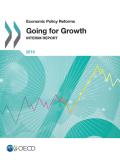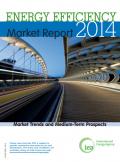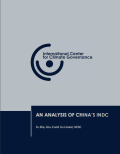
Taking into account bilateral political and economic relations, the authors analyze the role of institutional distance and host country attractiveness in location determinants of Chinese Foreign investments in EU in the renewable energy sector. Findings show that Chinese firms tend to invest in EU countries with reduced rule of law; market affluence is an attraction factor for them, but they do not seem to be human capital asset-seekers. Countries with politically stable environment are most attractive to sales/services subsidiaries; while countries with good control of corruption, low trade barriers and encouraging foreign ownership are most attractive to manufacturing subsidiaries. A large market is the most attractive factor for R&D subsidiaries, and a rich market is the most attractive factor for manufacturing subsidiaries. Manufacturing subsidiaries are more technological asset-seekers. R&D subsidiaries are the most non-human capital asset-seekers.

With the recognition on the importance of partnership and collaboration to tackle climate change, the project on Low Carbon Development for China and India seeks to understand learnings on options, barriers and success stories on implementability of policies and programmes promoting low carbon development in China and India.
Based on an understanding of similarities and differences between China and India, in 2012, The Energy and Resources Institute of India (TERI), National Center for Climate Change Strategy and International Co-operation, Central University of Finance and Economics and Zhejiang University launched one of the first collaborative efforts between research institutes in China and India on low carbon development. The intended outcome of the project is supporting policy development by facilitating south-south cooperation, creating relevant knowledge and building capacities.

Going for Growth is the OECD’s regular report on structural reforms in policy areas that have been identified as priorities to boost incomes in OECD and selected non-OECD countries (Brazil, China, Colombia, India, Indonesia, Latvia, Russian Federation and South Africa). Policy priorities are updated every two years and presented in a full report, which includes individual country notes with detailed policy recommendations to address the priorities.The next full report will be published in 2017.
This interim report takes stock of the actions taken by governments over the past two years in the policy areas identified as priorities for growth. This stocktaking is supported by internationally comparable indicators that enable countries to assess their economic performance and structural policies in a wide range of areas.

This year’s report includes an in-depth look at energy efficiency developments in the transport sector and in finance. Huge new waves of demand for mobility are emerging in OECD non‑member economies, bringing with them the challenges of pollution and congestion already faced in OECD countries. Fuel-economy standards and other policies are expected to help shape the market for more energy-efficient vehicles in the years to come. In financial markets, energy efficiency is becoming an important segment in its own right, aided by a growing range of financial products. This report documents the growing scale and diversity of energy efficiency products and actors.
Finally, this report reviews national energy efficiency market developments in various jurisdictions around the world, including Canada, China, the European Union, India and Italy. These case studies provide snapshots of specific energy efficiency sub-markets, and insights into how these markets may evolve in the coming years.

On 30 June 2015, the Chinese government submitted its Intended Nationally Determined Contribution (INDC), detailing its commitment to climate change mitigation and adaptation for the post-2020 period. This article offers an analysis of China’s INDC in terms of its basic assumptions and considerations, the ambition and fairness of the intended contributions, and the obstacles and challenges facing China in achieving these goals.
